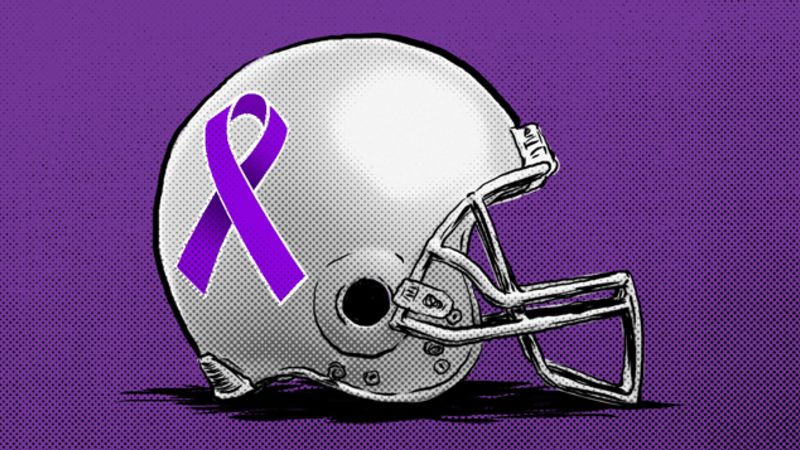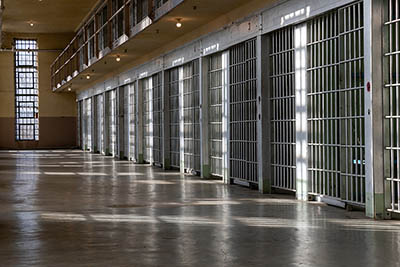In the wake of the Josh Brown domestic violence incident, the National Football League has, in the public’s eyes, badly mishandled the imposition of discipline over a player accused of domestic violence for the third time in three years. While the headlines have portrayed the NFL as soft on domestic violence following the Ray Rice, Greg Hardy, and, now, Josh Brown cases, it appears to me, as someone who has supervised domestic violence prosecutions for the State of New Jersey, that the NFL’s problem is not that it is soft on domestic violence. I think the league wants to be able to investigate and punish domestic violence appropriately, but it is finding that it is not an easy task. The NFL is simply making mistakes that are fairly typical of a rookie prosecutor that is unfamiliar with domestic violence prosecutions.
Addressing the Josh Brown scandal, NFL Commissioner Roger Goodell on October 27, 2016 told the Daily News’ Gary Myers during WFAN Radio’s “Chalk Talk” show, “We’ve learned a lot, but these are complex matters. When you talk to the domestic violence experts, these are difficult matters to deal with. You have rights, you have families that you have to be concerned with, privacy issues.” He’s right. Domestic violence prosecutions are complex matters that are notoriously difficult to prosecute. But the problems that are facing the NFL – integrating victim interests into the adjudicatory process, managing public opinion, and achieving fairness and uniformity in punishment – are the same problems that domestic violence prosecutors have been facing for years. Prosecutors have developed a playbook to overcome these problems. The NFL needs to read, understand, and utilize that playbook to reach better disciplinary outcomes and regain the public’s trust.
Rule #1: Understand the issue of domestic violence and the public’s expectations
By now, the NFL does not need to be told that crimes of domestic violence provoke extreme public outrage against the perpetrator. Domestic violence represents not only a violation of the rights of another person, but a breach of the societal value of trust in one’s intimate partner. Prosecutors know that bad domestic violence cases get even the calmest grand juries humming with indignation. Jurors treat claims of domestic violence with initial skepticism, but when confronted with objective evidence documenting a crime of domestic violence – pictures of a bloodied face or broken bones or shrieking cries for help on a 9-1-1 call – people struggle to contain their disgust.
A domestic violence prosecutor also understands that when prosecuting a public figure for domestic violence, the public will be interested in the outcome, and that a prosecutor’s failure to satisfy the public’s sense of justice will be met with hostility and resentment. The NFL, if it hasn’t done so already, needs to accept this lesson as it applies to its own system of player discipline. Whether the NFL likes it or not, it has become so enmeshed in the fabric of American life that it must take seriously the public’s expectation that it will deliver administrative justice after allegations of domestic violence. It’s now clear that the NFL is not going to convince the public that it domestic violence is someone else’s problem.
Rule #2: Design a system seeks the whole truth, even when it hurts
The NFL’s critical error in the Ray Rice, Greg Hardy, and Josh Brown cases was in imposing discipline too quickly, based on an incomplete or incorrect record of the incident. The NFL committed the rookie prosecutor’s mistake of hearing what it wanted to hear and imposing discipline based upon the rosiest picture of what may have happened. An experienced domestic violence prosecutor knows that the truth will eventually come out, whether in the press or – God forbid – in a subsequent incident. It is never worth sacrificing the truth for a quick and easy solution.
In Rice’s case, a horrific video of Rice punching and knocking out his victim hit the internet after the league had already imposed a two game suspension. In Brown’s case, the league imposed a one-game suspension prior to the release of the victim’s diary entries demonstrating a shocking pattern of abuse over a period of years. In both cases, the NFL was blindsided by evidence that it should have obtained before undertaking to discipline the players.
The NFL must create an adjudicatory system where it can be assured that it has access to all the evidence that will eventually be released, especially the evidence that is certain to come to light after the inevitable public records requests by the press. In practical terms, this means that the NFL should wait for the conclusion of any criminal case (the police file will be confidential while a criminal case is pending) and then make its own use of open public records laws to obtain the full contents of the police file. Only then should it conduct a hearing in which it can take testimony and compare witness accounts with the evidence gathered at the scene.
Once it is assured that it has all the evidence that will become available, the NFL must then honestly weigh the evidence and make its own decision about what really happened, and not rely on the prosecution’s charging decision or the plea bargain in the criminal case – which may have been based upon prosecutorial considerations that are inapplicable to an NFL hearing, which has different rules of evidence and a lesser standard or proof. Unless the league commits to a process that weighs all the evidence in the police file, it will simply be guessing when it tries to fit the punishment to the crime, and will continue to be skewered in the court of public opinion when it guesses wrong.
Rule #3: Seek justice even in the absence of victim cooperation
Any detective or prosecutor who has served in a domestic violence unit accepts victim non-cooperation as a fact of life. At a national conference for domestic violence prosecutors I attended last year, a domestic violence supervisor from New York told the audience that his rate of victim non-cooperation in his jurisdiction was 75%. Victims occasionally fail to report domestic violence incidents or refuse to cooperate with prosecutors for several reasons. The most troubling reason is that victims of domestic violence are often trapped in a cycle of abuse and can be subjected to undue influence by their abuser, or may simply be too afraid to face the abuser in court. But even where a victim has been subjected to domestic violence for the first time, the victim may be uncooperative due to continued love and compassion for the perpetrator, feelings of guilt or shame for causing the perpetrator painful legal troubles, or personal adverse financial or social consequences stemming from prosecution of the perpetrator. Whatever the reasons, a domestic violence prosecutor accepts that a victim may not cooperate, but does not let non-cooperation dictate the outcome of the case.
In the Ray Rice and Josh Brown cases, the victims were uncooperative and the NFL made the rookie prosecutor’s mistake of treating victim non-cooperation as free license to impose a milder punishment. When there is ample evidence of a serious assault, the public does not care about the victim’s forgiveness, and expects justice to be served. It is true that victim non-cooperation makes a case harder to prove, and that a victim’s wish for leniency should be considered as a mitigating factor by a prosecutor, but it should not absolve a person on wrongdoing when there is other evidence demonstrating that the player committed a serious offense. The following section explains how the NFL can create an adjudicative process that achieves justice even in the absence of victim cooperation.
Rule #4: Adopt the principles of “evidence based” prosecution
Prosecutors have developed a series of strategies to get closer to the whole truth in domestic violence prosecutions, and the NFL should adapt those strategies to suit its purposes. Around the country, domestic violence prosecutors have embraced “evidence based” domestic violence prosecutions, a technique by which so much evidence is gathered immediately that a case against a defendant can be tried even in the absence of victim cooperation. Techniques include the taking of on-scene photographs of injuries; preserving 911 calls and video evidence; taking victim statements at the scene on video, rather than at police headquarters after a long wait; and aggressively seeking out additional witnesses. Seasoned domestic violence prosecutors understand that some victims will not cooperate, so they must investigate each case proactively. They know that they cannot wait for the evidence to come to them, so they go out and find it themselves. The NFL must do the same.
The NFL of course cannot adopt the evidence based prosecution procedures of the police, but they must adopt the equivalent to suit its particular purposes. It must understand the types of evidence that are gathered in domestic violence investigations, and wait to adjudicate the case until it has all the evidence that would be used by the police in an evidence-based prosecution. It can do so through the same open public records requests used by the press to unearth the video, photos, and diary entries in the Rice, Hardy, and Brown cases. The league must then independently weigh all the evidence, even in the absence of victim cooperation, and impose discipline that will satisfy its viewers that it does not condone domestic violence.
Rule #5: Include due process protections for players to ensure fairness
The NFL’s adjudicatory system for allegations of domestic violence must include due process safeguards to protect the rights of accused players as it does the rights of victims. A system of more aggressive investigations and substantial adjudicative hearings would not only benefit the league by revealing those players who are truly in need of discipline, it would also benefit players who find themselves in the nightmare scenario of having been unjustly accused of a crime of domestic violence. And as a practical matter, any changes to the collective bargaining agreement regarding discipline or domestic violence will need the approval of the players, and the inclusion of due process safeguards should be something that everyone can agree upon.
Since the suggested changes to the disciplinary system would entail longer periods of investigation and adjudication, players should be accorded a presumption of innocence while the criminal charges are pending. They should also be provided with the right to confront their accuser in court and should not be subjected to double jeopardy. A failure to provide adequate fairness will result in embarrassment for the league in the form of overturned suspensions. In the Hardy case, for example, the NFL apparently had access to photos of the victim’s injuries prior to imposing discipline and imposed a relatively severe 10-game suspension, but the suspension was overturned on an appeal by an arbitrator due to a lack of clear notice to players regarding increased domestic violence penalties in the wake of the Rice cases.
When it comes to domestic violence, the NFL must reimagine itself as a prosecutorial and adjudicative body, and must understand that if it fails to deliver justice though a fair process, its brand will continue to suffer. Domestic violence is far more widespread than most people realize, and I have no reason to believe that football players are any more prone to domestic violence than the general public. But unless the NFL becomes more open about the issue of domestic violence and shows the public that it handles allegations with true investigation and not through back-room negotiation, the league will continue to be associated – fairly or unfairly – with this societal ill.
The author, Andrew Olesnycky, is the former supervisor of the Union County Prosecutor’s Office Domestic Violence Unit and handles domestic violence litigation in private practice for both victims and defendants.




Leave A Comment